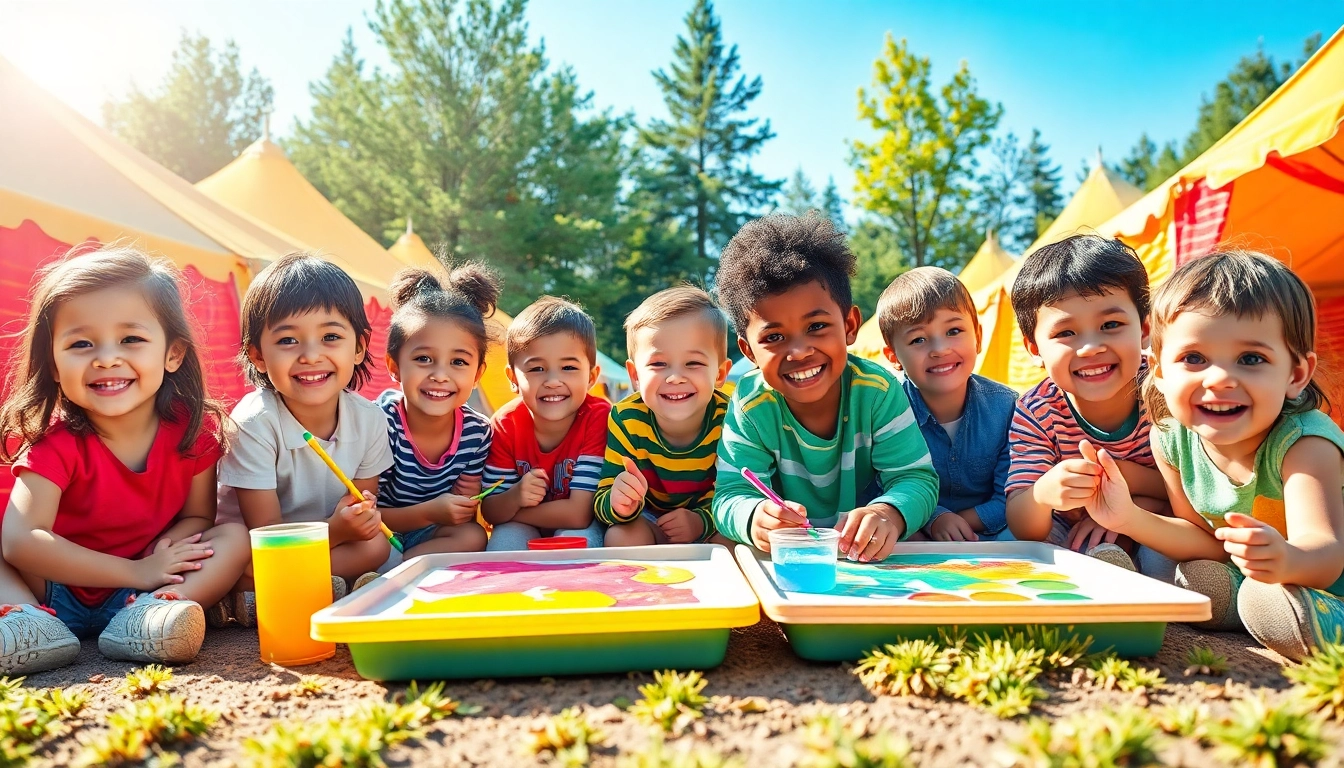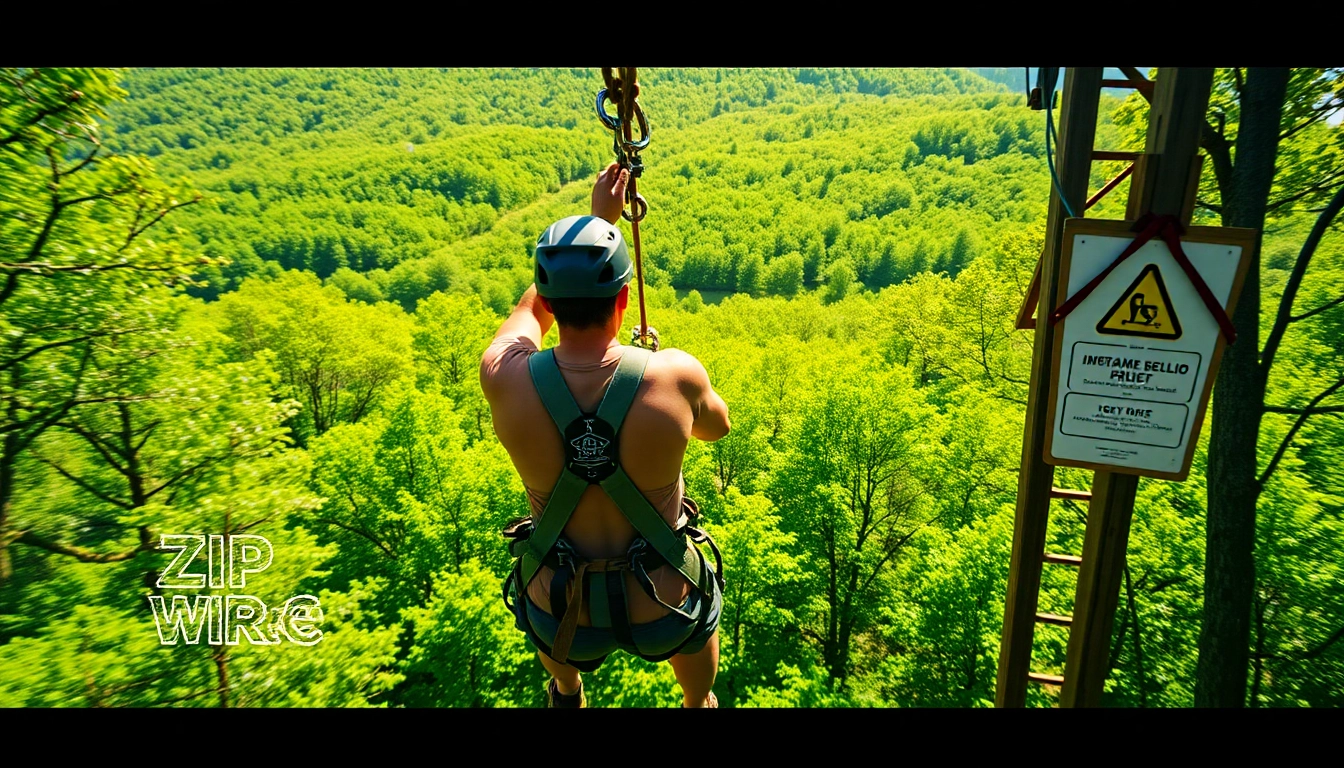Understanding Holiday Camps: Types and Benefits
What Are Holiday Camps?
Holiday camps offer a unique blend of accommodation, activities, and social experiences for families and individuals seeking an escape from their regular routines. Primarily found in the United Kingdom, these camps encourage holidaymakers to engage with the camp’s facilities and programs, fostering a sense of community and adventure. Unlike traditional lodging, holiday camps often feature a variety of amenities that range from entertainment venues to dining services, and they are usually located in scenic areas ideal for recreational activities. For those looking for comprehensive programs during school breaks or summer holidays, holiday camps can be the perfect solution.
Diverse Types of Holiday Camps
Holiday camps come in various formats, catering to different interests and age groups. Here’s a closer look at the types of holiday camps available:
- Residential Camps: These camps provide overnight accommodation and a full schedule of activities, making them ideal for children and teens looking for immersive experiences.
- Day Camps: Perfect for families who prefer returning home each evening, day camps offer full-day programs, typically covering sports, arts, and educational activities.
- Specialized Camps: Many holiday camps focus on specific interests, such as arts and crafts, coding, or sports, allowing participants to dive deep into their passions.
- Family Camps: These camps offer programs tailored for families, encouraging bonding activities and shared experiences, which makes them a great option for family vacations.
Benefits of Attending Holiday Camps
Engaging in holiday camps comes with multiple advantages:
- Social Skills Development: Camps foster an environment where children and adults can make friends, practice teamwork, and develop interpersonal skills.
- Skill Acquisition: Through various activities, attendees can learn new skills—from sports techniques to creative arts, enhancing their capabilities.
- Physical Activity: Participating in physical activities helps promote health and well-being, countering the sedentary lifestyle prevalent in today’s digital age.
- Increased Confidence: Overcoming challenges and engaging in new experiences can boost self-esteem and confidence among attendees.
- Memorable Experiences: The friendships and memories created during these camps often last a lifetime, providing shared stories and experiences for years to come.
Choosing the Right Holiday Camp for Your Family
Factors to Consider When Selecting Holiday Camps
Finding the perfect holiday camp can be overwhelming, but focusing on key factors can simplify the decision-making process:
- Age Appropriateness: Make sure to choose a camp that matches the age and developmental stage of your child to ensure appropriate activities and support.
- Interests and Activities: Select camps that align with your child’s interests, whether they are inclined towards arts, sports, technology, or outdoor adventures.
- Location and Accessibility: Consider the camp’s location in relation to your home or destination. Proximity can reduce travel stress.
- Camp Size: Smaller camps often provide more personalized attention, while larger facilities might offer a wider range of activities.
- Safety and Staff Qualifications: Prioritize camps that emphasize safety, employ qualified staff, and adhere to health guidelines.
Popular Locations for Holiday Camps
Various locations around the UK are known for their excellent holiday camps, each providing unique atmospheres and experiences:
- Butlins: Renowned for its family-oriented atmosphere and extensive range of activities, Butlins is a classic choice for many families.
- Pontins: Known for its value and variety of amenities, Pontins offers a fun-filled experience with a focus on engaging activities and entertainment.
- Center Parcs: Nestled in beautiful forest settings, Center Parcs integrates nature with recreational activities, making it a unique camp experience.
- Haven: Offering access to coastal areas, Haven camps are ideal for families who enjoy beach activities alongside their camp experience.
Understanding Camp Fees and Budgeting
When planning for holiday camps, it’s essential to consider your budget. Fees can vary dramatically based on the type of camp, duration, location, and included amenities:
- Duration: Day camps will generally be less expensive than residential camps that provide meals and accommodation.
- Early Bird Discounts: Many camps offer discounts for early registration, so plan ahead to save on fees.
- Additional Costs: Factor in potential costs for transportation, special activities, or equipment rentals that may not be included in the base fee.
Activities and Programs in Holiday Camps
Typical Activities Offered in Holiday Camps
Holiday camps are rich in activity variety, catering to diverse interests and age groups. Key activities commonly found include:
- Outdoor Adventures: These may include hiking, swimming, cycling, and team sports that promote physical activity and collaboration.
- Arts and Crafts: Camps often schedule sessions focused on creativity, allowing campers to explore their artistic talents through various mediums.
- Educational Workshops: Engaging classes on topics like cooking, technology, or environmental awareness can enrich camper skills.
- Team-building Exercises: Many camps integrate games designed to develop teamwork and communication skills.
Specialized Programs for Different Interests
In addition to general activities, many camps offer specialized programs tailored to specific interests, such as:
- Sports Camps: These camps focus primarily on enhancing athletic skills, often led by experienced coaches.
- Coding Camps: With the rise of technology, coding camps for children focus on teaching programming in a fun and engaging way.
- Nature Camps: Designed to foster environmental awareness, these camps often include activities like gardening, wildlife observation, and outdoor survival skills.
- Art Camps: These emphasize various art forms, often allowing campers the chance to work with multiple mediums and techniques.
Seasonal Events and Themes in Holiday Camps
Many holiday camps embrace seasonal themes that enhance the experience, which can include:
- Holiday Festivals: Camps during Halloween, Christmas, or Easter often have themed events featuring decorations, crafts, and special meals.
- Sports Tournaments: End-of-summer festivities may conclude with fun competitions that allow campers to showcase their skills.
- Nature Exploration Days: Camps might organize special days focusing on environmental education and outdoor adventures, especially during spring and summer.
Preparing Your Child for Holiday Camps
What to Pack for Holiday Camps
Packing for a holiday camp is crucial for ensuring campers feel comfortable and well-prepared. Consider the following items:
- Clothing: Include weather-appropriate gear, comfortable activewear, swimwear, and sufficient changes of clothes.
- Personal Items: Toiletries, sunscreen, insect repellent, and any necessary medications should be included.
- Entertainment: Books, board games, or other personal entertainment can help during downtime.
- Identification: Label all belongings with your child’s name to prevent loss and mix-ups.
How to Help Your Child Adjust to Camp Life
Transitioning into camp life may be challenging for some children. Here are ways to support them:
- Discuss Expectations: Talk about what they can expect at camp, including the daily schedule, activities, and new friendships.
- Foster Independence: Encourage children to pack their bags and engage in decision-making about their camp activities.
- Maintain Communication: Establish a system for keeping in touch, whether it’s through letters, email, or designated phone calls, depending on camp policies.
Communicating with Camp Leaders and Staff
Effective communication with camp leaders is vital, ensuring your child’s needs are met:
- Pack a Communication Plan: Schedule pre-camp meetings, phone calls, or emails to address any concerns or expectations.
- Check-in Regularly: Establish a routine for reaching out to the camp to monitor your child’s experience.
- Feedback Loop: After the camp, communicate with staff about your child’s experience for insights and potential future improvements.
Success Stories: Memorable Experiences from Holiday Camps
Personal Testimonials from Campers
The impact of holiday camps can be profound, with many campers reporting transformative experiences:
- Friendships Made: Many campers express how they made lifelong friends during their time at camp, bonding over shared experiences.
- Skill Growth: Campers often report gains in confidence and new skills as a result of participation in various activities.
- Life Lessons: Experiences at camp can teach resilience, adaptability, and teamwork, providing children with critical life skills.
The Long-term Benefits of Holiday Camps
Participating in a holiday camp can yield long-term advantages, including:
- Enhanced Social Skills: The collaborative nature of camps fosters stronger interpersonal skills that benefit children into adulthood.
- Memory-Making Opportunities: The memories and stories created during camp events become cherished parts of childhood.
- Continued Interests: Many children pursue the interests ignited during camp long afterward, potentially influencing their career paths.
How Holiday Camps Foster Lifelong Friendships
One of the most notable aspects of holiday camps is the friendships formed. The shared experiences create a unique bond:
- Group Activities: Engaging in activities as a team encourages camaraderie and the formation of deep connections.
- Shared Challenges: Overcoming camp challenges, such as nature hikes or team sports, fosters mutual respect and understanding.
- Communication Opportunities: Gatherings around meals or during evening campfires provide relaxed settings for friendship-building conversations.



